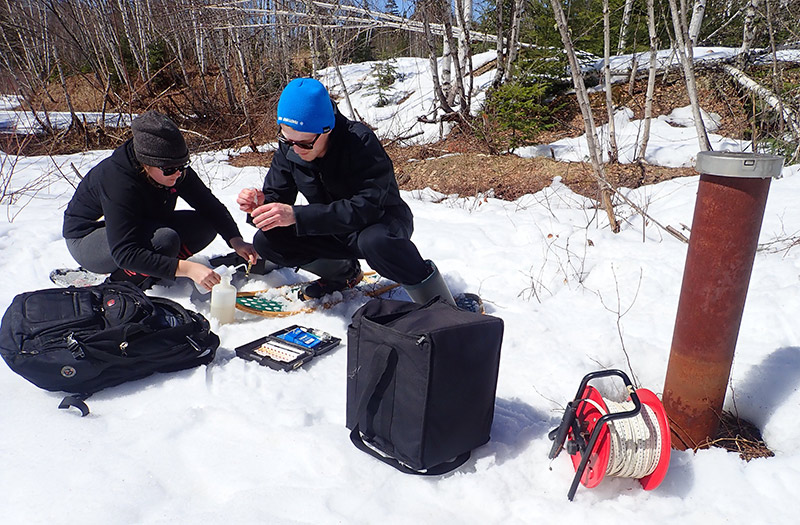UNB announces new programs in environmental sciences
Author: UNB Newsroom
Posted on May 31, 2021
Category: Faculty of Science , UNB Fredericton

The University of New Brunswick is launching new programs in environmental sciences available for students pursuing a bachelor of science degree.
UNB recognizes the need to prepare students for careers that respond to climate change and the impacts of humans on the environment. The new programs, which are pre-accredited by the non-profit Eco Canada, will provide comprehensive theoretical and empirical training across the scientific disciplines.
An accredited degree in the environmental sciences will open opportunities for students to pursue a variety of careers with government, not-for-profits and the private sector in areas such as conservation, meteorology, climatology, water and waste management, and site mitigation and remediation.
“These new programs will allow students to pursue their own specific interest in environmental sciences from a broad foundation in the core scientific disciplines,” says Dr. Gary Saunders, dean of the faculty of science at UNB Fredericton. “Students will learn to understand complex environmental issues in a broader context and employ problem-solving skills to effect positive solutions.”
During the first year of a student’s program, a comprehensive suite of introductory science courses will develop a broad science background. For subsequent years, students will take a core of environmental science courses and a selection of First Nations, ethics, social, economic, or political classes that reflect on wider environmental issues.
Students will also choose one of six science specialization streams. Each stream will provide an emphasis on quantitative, evidence-based experiential learning through additional laboratories and field schools. The degree will culminate with a project-based capstone course in the final year of study.
The six streams within the Environmental Sciences program are:
- Biological Responses to the Environment, which focuses on understanding the various life forms on our planet and their responses to the environment.
- Chemical Environmental Perspectives, which examines the properties and reactivity of molecules, in addition to their identification and quantification, to understand how to mitigate their impact on the environment.
- Environmetrics, which focuses on mathematical and statistical training for application in the environmental sciences, environmental engineering, and environmental monitoring and protection.
- Responsible Resource Recovery, which provides students with an understanding of a broad range of environmental and socioeconomic issues, and how such issues relate to the science of geologic resources.
- Sun-Earth Interaction, which explores the physical processes taking place in the solar-terrestrial environment, and the energy transport mechanisms that drive life on planet Earth.
- Water-Earth Interaction, which provides students with the science underpinning of the global water supply and water quality, river and coastal erosion, and siltation.
Students pursuing a bachelor of science at UNB Fredericton can now claim their major in one of the new environmental science streams.
Media contact: Kathleen McLaughlin
Photo: Groundwater sampling during 3rd yr Geoenvironmental Field School. Credit: Karl Butler.
